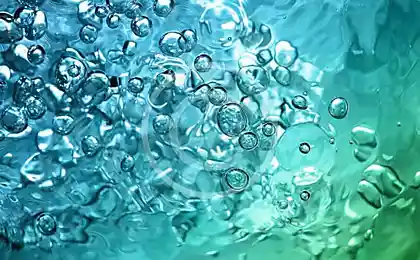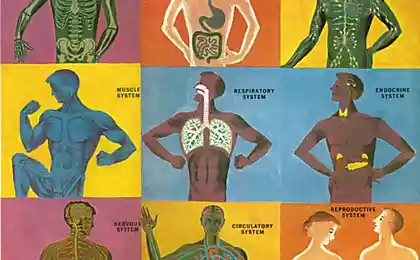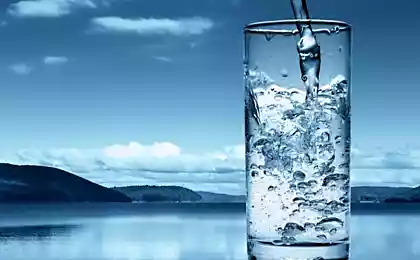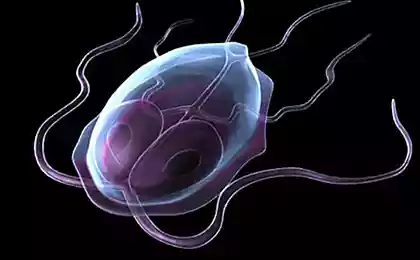205
Can I drink water while eating?
Who among us does not drink breakfast coffee, lunch with tea, and dinner with water? Some people don’t even think about drinking soup without a glass of refreshing liquid! And yet, drink Or not? Some nutritionists and adherents of a healthy lifestyle say that it is impossible to drink food in any case, because the liquid dilutes gastric juice, affects its acidity and slows down the digestion process. Others will drink, drink, and drink.

Editorial "Site" I finally decided to figure it out. Is it possible to drink food? water and how this habit can affect the work of the gastrointestinal tract. This is what experienced nutritionists and competent gastroenterologists say!
The point of view of those who do not drink food is quite logical: water dilutes gastric juice and saliva, washes out important enzymes necessary for digestion of food, and this negatively affects health. In fact, logical guesses are far from physiological processes – they are much more complex.
The process of digestion does not begin in the stomach, but in the head: when a person anticipates a delicious meal, saliva forms in the mouth. When chewing food, we mix it with saliva enriched with enzymes so that it is already softened into the stomach. Next, gastric juice is connected to the process.
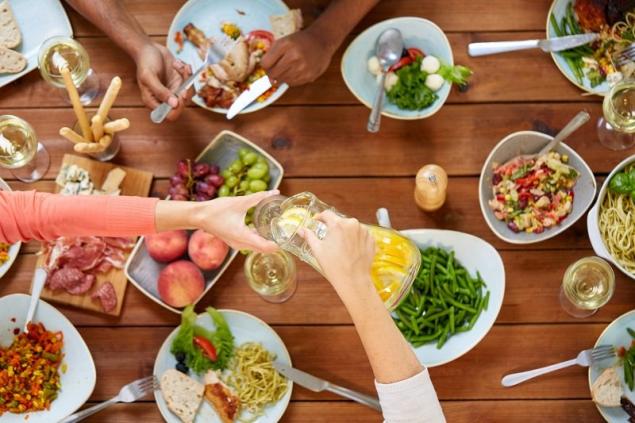
The stomach of an average person needs 3-4 hours to digest a hearty meal and turn it into a chymus – a liquid substance. This very chymus leaves the stomach and goes on a journey through the intestines, where it gives the body useful nutrients.
And if food stays in the stomach for several hours, then the water does not linger for long - 300 ml of water will leave the stomach after 10 minutes. If you wash down food with water, it quickly passes through the digestive system, further moisturizing dry food.
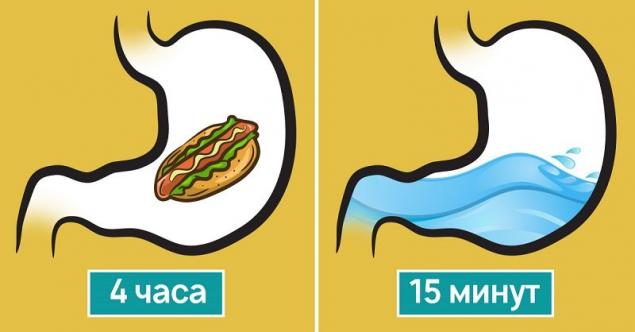
Getting into the stomach during a meal, water does not significantly change the acidity of gastric juice. And the action of digestive enzymes, it does not depress, but on the contrary, helps them better cope with the task. The work of enzymes occurs in the liquid phase, this fact is important for the absorption of useful substances after digestion into the blood.
Even if you fundamentally eat dry, the body itself will secretly secrete the necessary amount of fluid in the stomach and intestines. By the way, in the stomach is released about 2 liters of fluid per day!
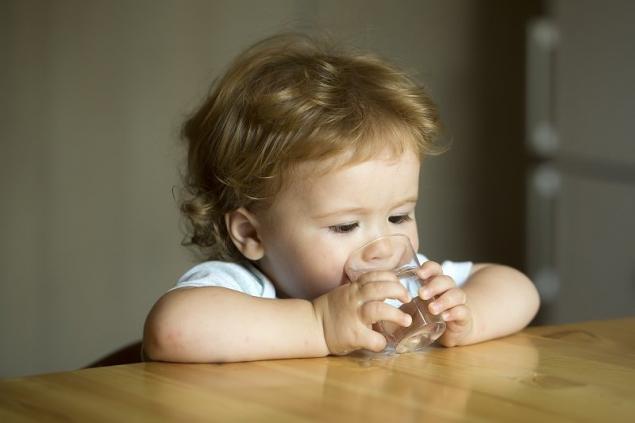
The human body is a carefully thought-out system. Even if you drink a gallon of water, it will not affect the acidity. If the stomach feels that it cannot cope with the process of digestion, it will produce a new portion of enzymes and increase the acidity of gastric juice if the water inadvertently lowered it. By the way, water enters the stomach and along with food - take at least an orange, which is 80% water.
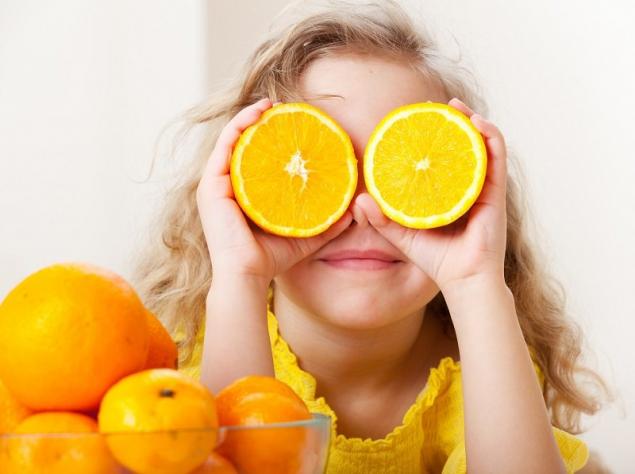
Proponents of food dry claim that getting into the stomach during meals, water pushes undigested food from the stomach straight into the intestines. Proponents of washing down believe that even if the liquid leaves the stomach earlier than solids, it does not affect the speed of their digestion and certainly does not drag some of the food into the intestines ahead of time.

Is it possible to drink while eating? The conclusion is simple: if you are used to drinking food, you can continue without remorse! Water, if drunk properly, does not cause any harm. On the contrary, the liquid helps to soften and better digest dry food, improve the work of digestive enzymes and enhance the absorption of useful nutrients. Do not drink until you have chewed and swallowed food - it should be well soaked in saliva.
There is another plus: when a person drinks while eating, he makes even minor, but pauses, and this slows down the course of the meal. As a result, less is eaten and you can forget about the ill-fated feeling of heaviness after overeating!

If you are used to washing down food not with water, but with tea, there is no difference. Liquid equally affects digestive processes, whether it is tea, water with lemon or coffee. And although the temperature of the liquid also does not affect the acidity and speed of digestion of food, nutritionists still recommend avoiding too cold and too hot water.
The habit of drinking water with ice can cause not only fermentation and decay in the stomach, but also cause diseases such as colitis, enteritis and dysbiosis.
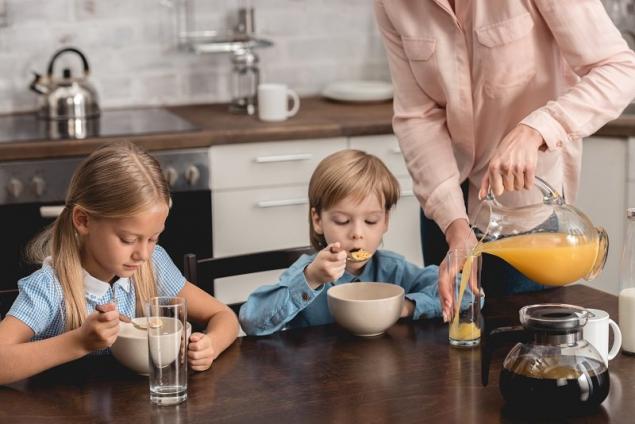
Drinking or not drinking is up to you. If you decide not to drink food – health, because such a habit will not harm. And if you washed down, washed down and plan to drink, do it without remorse, because this habit does not harm the health of the gastrointestinal tract and does not inhibit digestive processes.
Admit it, do you drink while eating too? Or do you prefer to eat dry food? I am sure you will also be interested in reading why Tibetan mahatmas and all beautiful women drink hot water in the morning.

Editorial "Site" I finally decided to figure it out. Is it possible to drink food? water and how this habit can affect the work of the gastrointestinal tract. This is what experienced nutritionists and competent gastroenterologists say!
The point of view of those who do not drink food is quite logical: water dilutes gastric juice and saliva, washes out important enzymes necessary for digestion of food, and this negatively affects health. In fact, logical guesses are far from physiological processes – they are much more complex.
The process of digestion does not begin in the stomach, but in the head: when a person anticipates a delicious meal, saliva forms in the mouth. When chewing food, we mix it with saliva enriched with enzymes so that it is already softened into the stomach. Next, gastric juice is connected to the process.

The stomach of an average person needs 3-4 hours to digest a hearty meal and turn it into a chymus – a liquid substance. This very chymus leaves the stomach and goes on a journey through the intestines, where it gives the body useful nutrients.
And if food stays in the stomach for several hours, then the water does not linger for long - 300 ml of water will leave the stomach after 10 minutes. If you wash down food with water, it quickly passes through the digestive system, further moisturizing dry food.

Getting into the stomach during a meal, water does not significantly change the acidity of gastric juice. And the action of digestive enzymes, it does not depress, but on the contrary, helps them better cope with the task. The work of enzymes occurs in the liquid phase, this fact is important for the absorption of useful substances after digestion into the blood.
Even if you fundamentally eat dry, the body itself will secretly secrete the necessary amount of fluid in the stomach and intestines. By the way, in the stomach is released about 2 liters of fluid per day!

The human body is a carefully thought-out system. Even if you drink a gallon of water, it will not affect the acidity. If the stomach feels that it cannot cope with the process of digestion, it will produce a new portion of enzymes and increase the acidity of gastric juice if the water inadvertently lowered it. By the way, water enters the stomach and along with food - take at least an orange, which is 80% water.

Proponents of food dry claim that getting into the stomach during meals, water pushes undigested food from the stomach straight into the intestines. Proponents of washing down believe that even if the liquid leaves the stomach earlier than solids, it does not affect the speed of their digestion and certainly does not drag some of the food into the intestines ahead of time.

Is it possible to drink while eating? The conclusion is simple: if you are used to drinking food, you can continue without remorse! Water, if drunk properly, does not cause any harm. On the contrary, the liquid helps to soften and better digest dry food, improve the work of digestive enzymes and enhance the absorption of useful nutrients. Do not drink until you have chewed and swallowed food - it should be well soaked in saliva.
There is another plus: when a person drinks while eating, he makes even minor, but pauses, and this slows down the course of the meal. As a result, less is eaten and you can forget about the ill-fated feeling of heaviness after overeating!

If you are used to washing down food not with water, but with tea, there is no difference. Liquid equally affects digestive processes, whether it is tea, water with lemon or coffee. And although the temperature of the liquid also does not affect the acidity and speed of digestion of food, nutritionists still recommend avoiding too cold and too hot water.
The habit of drinking water with ice can cause not only fermentation and decay in the stomach, but also cause diseases such as colitis, enteritis and dysbiosis.

Drinking or not drinking is up to you. If you decide not to drink food – health, because such a habit will not harm. And if you washed down, washed down and plan to drink, do it without remorse, because this habit does not harm the health of the gastrointestinal tract and does not inhibit digestive processes.
Admit it, do you drink while eating too? Or do you prefer to eat dry food? I am sure you will also be interested in reading why Tibetan mahatmas and all beautiful women drink hot water in the morning.


